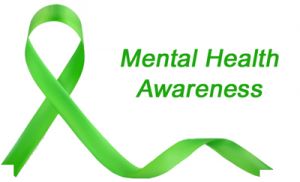Mental Health Awareness
This week is mental Health first aid week. The aim is to increase Mental Helath awareness poor and good and help break down the stigma and barriers to talking about our mental health. Encouraging those who need help seek help.
From my own observations of teaching and volunteering not many people know the symptoms/signs of poor mental health. Plus d don’t know how to improve mental health or where to go to ask for help. This is the first of 2 blogs to help increase the awareness of poor mental health.
Poor mental health is often put down to a variety of things. It is often dismissed until it becomes so bad that we are unable to function. For example, finding it difficult to manage how we think, feel, act with respect to daily stresses could be a sign of poor mental health.

Symptoms
The symptoms of mental illness can vary person to person. They can affect emotions, thoughts, and behaviours as well as physical areas like, headaches, stomach pain and other unexplained aches.
These are a few of the common ones.
- Significant tiredness, low energy or problems sleeping
- Withdrawal from friends and social activities
- Inability to think clearly and deal with everyday problems
- Reduced ability to concentrate
- Inability to cope with stress
- Feeling sad or down most of the time
- Excessive fears or worries, or extreme feelings of guilt
- Extreme mood changes of highs and lows
- Withdrawal from friends and activities
- Trouble understanding and relating to situations and to people
There is no sure way to prevent mental illness but there are things you can do improve your overall mental wellbeing.
Firstly, be aware of the signs and symptoms and don’t be afraid of talking about it or asking others how they are feeling mentally. You might be surprised that others share the same experiences as you.
Taking steps to control stress, to increase your resilience and to boost low self-esteem may help. For example
Take good care of yourself.
Sufficient sleep, healthy eating and regular physical activity are important. As is trying to maintain a regular schedule. If you do have problems sleeping or if you have questions about diet and physical activity talk to your GP
Look after your self-esteem.
Our self-esteem is the opinion we have of ourselves. When our self-esteem is good it helps us to deal better with life and when low we can find life difficult to deal with.
As humans we tend to focus on the negative and ignore the positives and by focusing on what is wrong about ourselves, lowers our self-esteem. It takes time to boost self-esteem, but it can be done. Identifying the negative thoughts and beliefs is the first step the next is to challenge them.
Here is a common example
You may tell yourself “I’m useless” or that “nobody cares about me”.
Start to note these negative thoughts and write them on a piece of paper or in a diary and see if you can work it when you first started to think like this. Next start to challenge these thoughts, by writing some evidence to the contrary, such as, “I’m really good at caring for others” or “my friends and family keep in contact with me”.
Then note down other positive things about yourself, such as “I’m thoughtful” or “I’m a great cook” or “I’m someone that others trust” and perhaps note down some good things that other people say about you.
What would a Friend Say?
Start giving priority to yourself by being kind to yourself. This doesn’t have to cost anything it can be just rather than being self- critical think pause. Instead think about what you say to friend in a similar position.
Say “No”
Finally start saying “NO”. It is easy to overburden ourselves which in turn can lead to the feeling of being overwhelmed, resentful, angry or depressed. Generally saying “No” does not upset relationships.
I hope these tips help in my next blog I will look at ways we can help to nurture good mental wellbeing.
